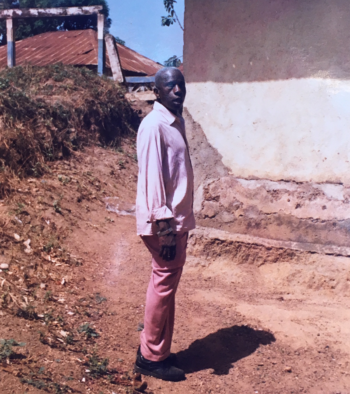
By Mosie Bowen —
When the Sierra Leonean rebels swept through Kabala torching houses and government buildings, Pa Gbani decided not to run. In his room, he read his Bible, prayed and waited for the inevitable.
As a detective at the police barracks, Pa was among the targets as some 30 rebels trained by Libya’s Colonel Muammar Gadaffi doused buildings with gas and fired rocket-propelled grenades during the 1994 attack.
Miraculously, the fire died down before reaching his room. In fact, the same thing happened for everybody in his church.
“Nobody was killed or injured or had property loss that was in our church,” says Pastor Ralph Bowen, a missionary at the time in Sierra Leone. “God just protected them. It was a day of miracles.”
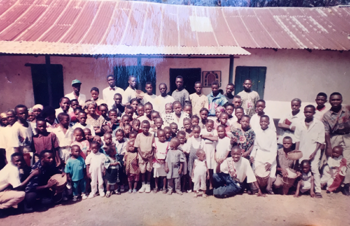
It was Shadrach, Meshach and Abednego all over again.
One church member hid in a clump of banana trees. Two guys lay quietly on top of a thick wall hidden in the dusk. Pastor Ralph had the good fortune to have a vehicle, in which he fled with his wife and a few disciples.
At one point on the road out of town, the district officer came out of nowhere and warned him to head down an alternative route. The rebels were ahead.
There were an estimated 50 deaths in the rebel attack on Kabala.
The deliverance of the American missionary’s church members was extraordinary because they weren’t known for caution. The fact of the matter is that Ralph and his street-preaching disciples courted danger as a result of their boldness.
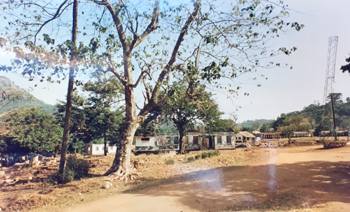
They would preach in the open air, in public spaces, and audaciously expose the lies of the secret witchcraft societies that were cultural stock in Sierra Leone. The “Tamoboro” of Kabala, in particular, were renowned in the practice of the dark arts.
Even presidents had been known to drive all the way to Kabala, 200 miles northwest of the capital in Freetown to curry favor.
The fact that Pastor Ralph’s church members would call them out publicly as a sham did not endear him with the powers that be in the town. In fact, the mayor, the police chief and some head witches called him into police headquarters more than once to warn him to stop “bashing their culture.”
At one meeting, the town leaders threatened: “If you don’t stop preaching against the Tamoboro, we can’t guarantee your safety.”
“Well, you’ll just have to kill me,” Ralph retorted.
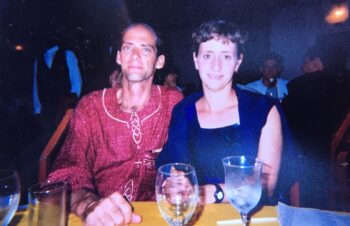
Just days before the rebel attack, town leaders again exhorted their only foreigner to be more respectful with local customs.
Never one to cow, Ralph stood up to their intimidation with a verbal fusillade against the Tamoboro.
They boasted about their powers to beat the rebels. Ralph said this would only provoke the rebels to attack the district.
They formed a vigilante group to join the front but returned home with TVs and furniture from homes boarded up and abandoned by people fleeing the war. Refugees in the town had seen their own items in the loot brought home by the vigilantes but were too afraid to speak. Ralph was giving voice to the rising anxiety among the people.
“The vigilantes accomplished nothing but looting and pillaging where they found empty houses,” Ralph says.
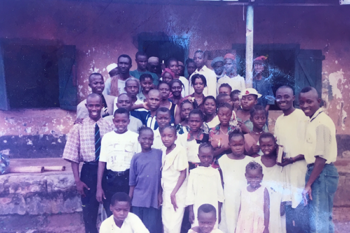
Ralph ended by saying that if they trusted in the devil’s power, the devil would descend upon them. The rebels would come, and the Tamoboro were to blame, he said.
“It was the first time in their history that anybody spoke out against witchcraft in their culture. It took a foreigner,” for whom they would have a bit more tolerance, Ralph remembers.
“If you trust witchcraft power, you’re just going to bring the rebels here,” he warned.
“At the time, it didn’t seem prophetic, but it really was.”
Less than a week later, the rebels attacked. As God’s irony would have it, the very men who once threatened Pastor Ralph all wound up dead.
“Kabala was a very proud about their witchcraft prowess,” Ralph says. “It was like they were the capital of witchcraft in the country.”
Sierra Leone is a diamond-rich nation but because of widespread corruption it languished at the time at the bottom of the United Nations’ poverty list. The rebels wanted the diamonds. They were also trained by Libya’s Colonel Qaddafi to destabilize the region.
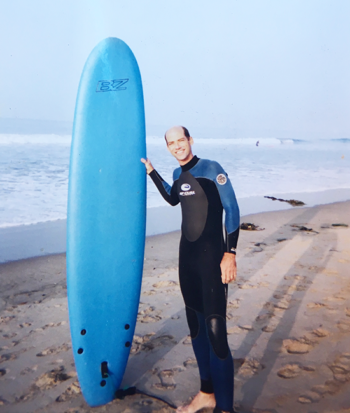
The rebels in Sierra Leone unleashed a brutal terror on the civilian population. When the government publicized democracy with the mantra “the government is in your hands,” the rebels responded by chopping off arms.
“Do you want short sleeve or long sleeve?” they would ask their victims. They could cut off the lower arm or the upper arm.
Because of the Tamoboro’s boasting and “fight” against the rebels, the 1994 attack was considered a “vendetta.”
“The rebels came to pay back these vigilantes,” Ralph says.
Understandably, people panicked when the band of 30 rebels came into town.
They carried lists of targets: the city leaders and the Tamoboro. As a government employee, Detective Pa Gbani was a rebel target.
But Pa didn’t share the sentiment of the Tamoboro supporters. He had been attending Pastor Ralph’s church for some time. He trusted God — and he knew that the danger was even greater if you ran into the street. Innocent victims were being machine-gunned.
“People got caught in the crossfire. If they ran, they got caught,” Ralph says.
So he got his Bible and decided to read. There was no electricity in the town, so he lit a candle.
“He locked himself in his room and started to pray. He knew well if he died, he’d be going to Heaven. He believed in the power of prayer, that God could save him.”
The rebels ignited the front rooms in the barracks and apparently assumed the whole barracks would burn. But Pa’s room at the back was left untouched. The fire extinguished by itself.
“It was truly a miracle,” Ralph says. “Even with the wall separating him from the fire, the transference of heat would have set the rest of the place on fire.”
To know more about a personal relationship with God, click here.
Mosie Bowen is the adopted son of missionary Ralph Bowen. He now studies at the Lighthouse Christian Academy in Los Angeles.



